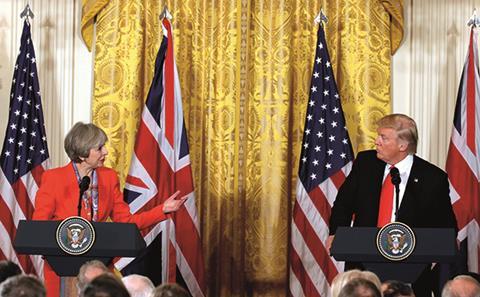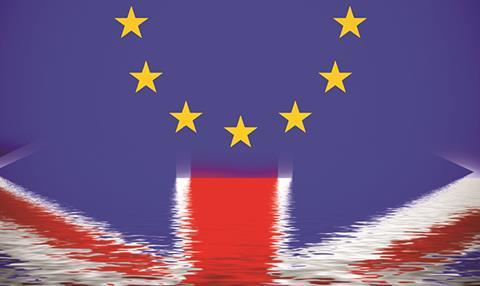Whether President Trump lasts his full four-year term or not, what we now know is we can take nothing for granted on the other side of the Atlantic.

In his first week since his inauguration, Trump has signed off the building of his infamous wall (which Mexico is understandably refusing to pay for); stopped research into global warming on the wonderfully disingenuous basis that he agrees it’s happening but doesn’t think it’s very important; maintained his belief in the value of torture (but allowed his defence secretary General Mattis, who opposes it, to have the final say); and then, to cap a busy week, banned citizens from seven Muslim countries from entering the United States while carefully excluding those in the Middle East in which his business empire has a financial stake.
He says it’s to protect the US from the threat of Islamic terrorism, so his choice of countries is strange given nearly all of the 9/11 terrorists were from Saudi Arabia. But then business is still quite clearly business in the Trump White House.
While all that was happening, Trump found time to welcome Theresa May as the first foreign leader to be invited to Washington since he took office.

With Brexit in the background, it made good sense for the PM to take advantage of this early offering. But it carried a price. In developing a decent working relationship with him, May was always going to be accused of agreeing with his sometimes bizarre and more often repugnant views on a whole range of issues, unless she came out publicly and condemned them.
A media storm inevitably followed May’s refusal to condemn Trump’s ban on migrants outright, but she did what a responsible leader in these situations has to do. She sidestepped the question because she knows that maintaining a healthy relationship is more important than shrill virtue signalling.
Best for Britain
Labour MPs and a couple of Conservatives lined up to condemn her but she has stood her ground and rightly so.
Good government is about not taking the easy option but standing firm and doing what is best for Britain, even when to do so is uncomfortable.
May is showing in her quiet, undemonstrative but purposeful way that she is ready to make the tough choices when she has to.
This week also saw the emergence of the European Union (Notification of Withdrawal) Bill to, in its own words, “confer power on the prime minister to notify, under article 50(2) of the Treaty on European Union, the United Kingdom’s intention to withdraw from the EU.” That’s it. No more, no less.

Remainer MPs complain the bill is too short to allow the amendments they want to move to restrict Mrs May’s negotiating position and have threatened further legal action. But the same Supreme Court that ruled that a bill was needed because parliament is sovereign cannot now argue that that same parliament cannot construct and debate its own bills.
In the end, the prime minister will get her bill through both houses and negotiations with the EU will at last begin in earnest.
Meanwhile, the UK economy grew faster in 2016 than that of any other member of the G7 - further evidence that the dire warnings of economic collapse that would follow a ‘leave’ vote were badly misplaced.
As for the property industry, London commercial property will remain stalled as long as passporting of financial services remains unresolved but elsewhere we will be looking for the much-heralded housing white paper and some urgently needed reform of stamp duty, not to mention the impact of the re-rating of business rates to stimulate the market, rather than worrying about Messrs Juncker or Schulz.
Steve Norris is non-executive chairman of Soho Estates and BNP Paribas Real Estate






























No comments yet